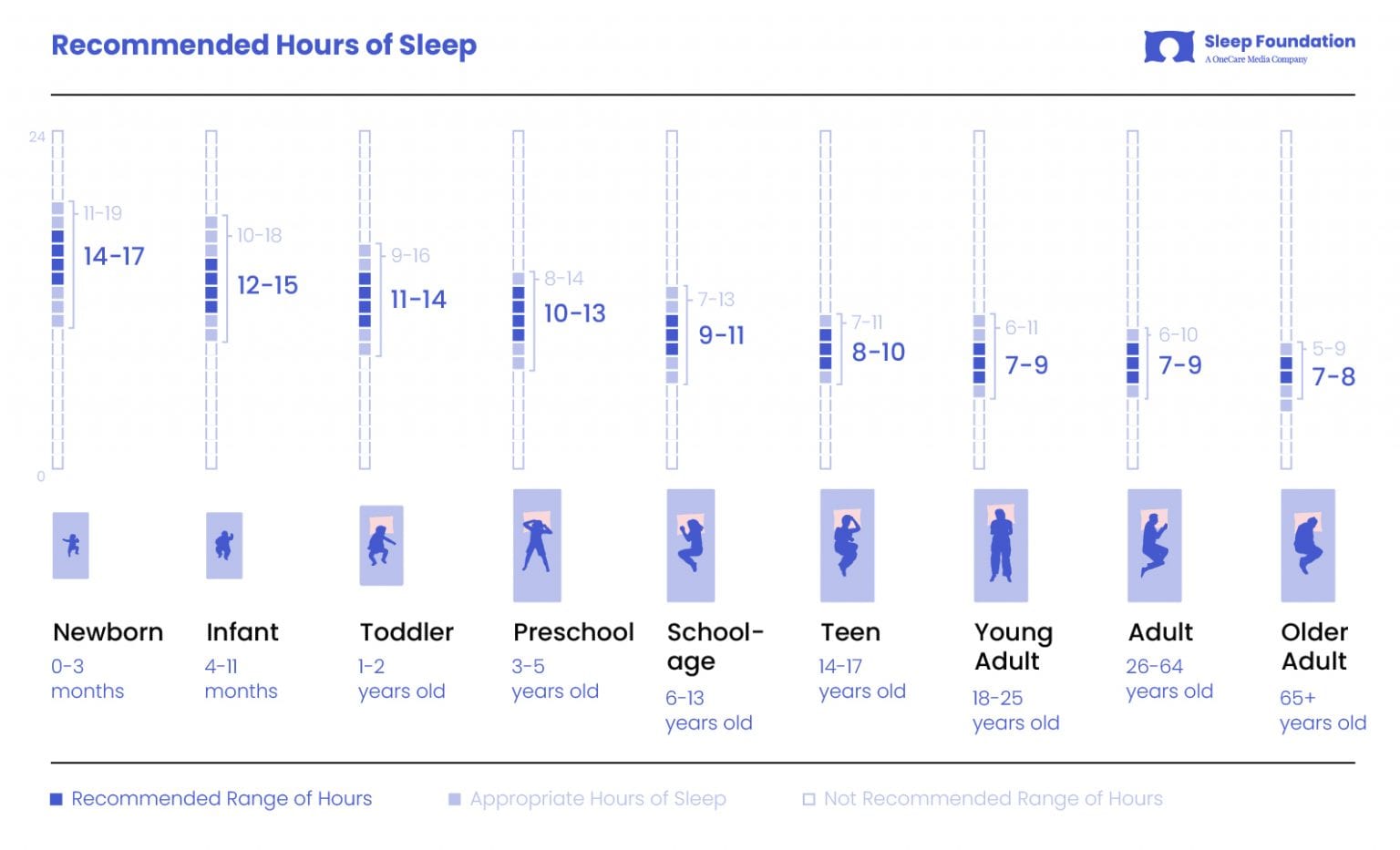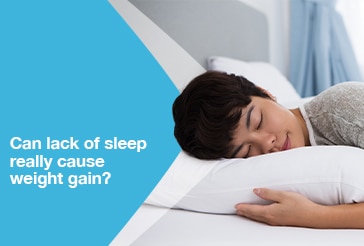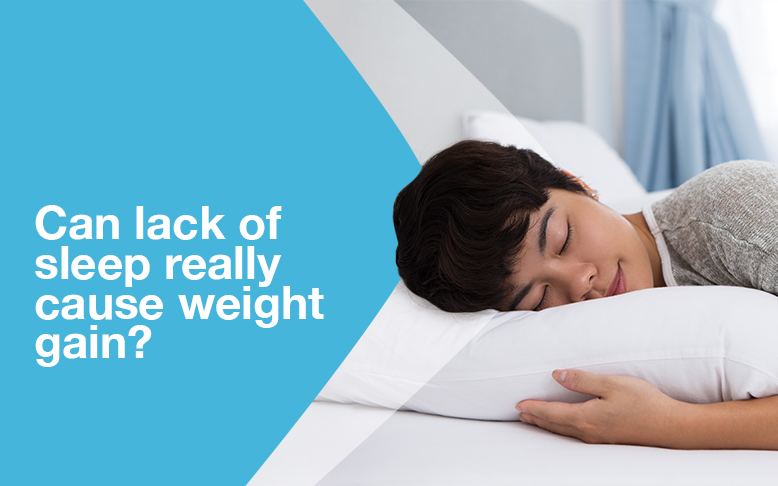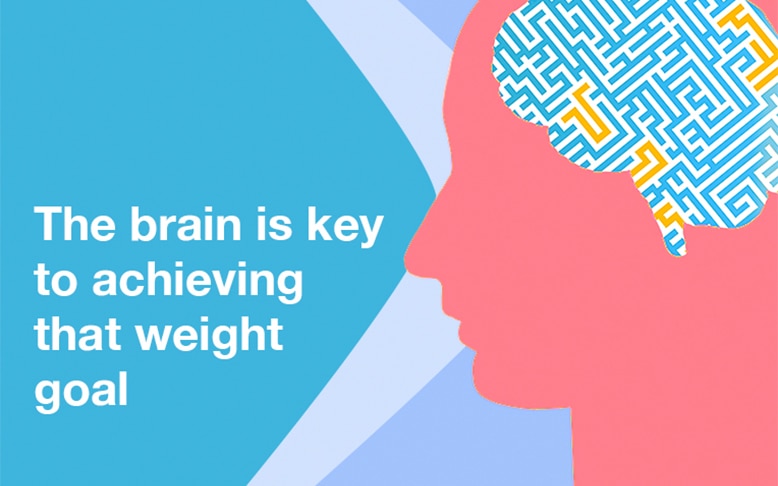Introduction
Despite the hassles of modern society, we must give dedicated attention to our sleep and nutrition as it plays a significant role in our overall health.
Sleep is a normal occurrence everyday. After a long day’s work, people feel tired and sleep to regain strength. But sleep is more than just taking a “rest”. It is an essential body function for humans that allows the body to restore its normal physiologic state.

The Importance of Sleep
Humans and machines are perpetually active. The Centers for Disease Control and Prevention said that from 1985 to 2012 there is a “progressive decline in sleep”, hence sleep deficiency is considered to be a “public health epidemic”.1 However, regardless of the demands of society today, sleep remains a basic human need.
Below are 3 reasons why people need to invest in better-quality sleep.
- Sleep plays a significant role in cognitive function and work performance.
Good sleep fosters optimal waking cognition with improvement on mental alertness, attention, working memory and learning ability.2,3 Sleep deprivation leads to cognitive function decline resulting in poor work, school, and daily activities performance. Fatigue increases human error, human error related accidents, industrial disasters and even death.2
- Sleep affects emotions and mood.
Sleep is important in emotional regulation and mental well-being. Deprivation of sleep affects mood and emotional memory predisposing someone to select or remember negative memories via sleep dependent memory processing.4 Sleep deficiency can lead to irritability, anxiety and can lead to or aggravate depression symptoms. Children who lack sleep have behavioral problems usually involving hyperactivity. Sleep deficiency also predispose to development of mood disorders and dementia.
- Sleep influences metabolism, disease, pain, and immunity.
Sleep deficiency and restrictions increase the risk of developing metabolic and cardiovascular diseases including hypertension, cardiac arrhythmias, stroke, obesity, diabetes, and metabolic syndrome. Studies also showed that sleep of 7 to 8 hours a day is generally associated with lowest mortality. However, too much sleep also alters human physiology in unfavorable ways, as uncontrolled chronic illnesses leading to inactivity. Poor sleep and even chronic partial sleep loss can lead to decreased cellular insulin sensitivity, along with increased cortisol and decreased leptin levels. Decrease in leptin level signals need for increased caloric intake.5 These changes stimulate hunger, appetite, food craving leading to higher pancreatic beta cell load and ultimately lead to weight gain, decrease physical activity, poor glucose tolerance and consequently type 2 diabetes mellitus and metabolic syndrome. Sleep duration and quality also affects immune status. Sleep deficiency may increase pro inflammatory cytokines, reduce natural killer cell activity and interleukin-2 which are crucial for host defense against pathogens especially viruses.6,7 Short sleep duration and poor sleep efficiency, especially in prolonged periods, increases risk for respiratory infections due to increased viral infection susceptibility especially for rhinovirus (common colds)8 and COVID-19 virus and pneumonia (less than 5hrs or more than 9 hours sleep per day).9
Recommended Hours of Sleep: How much is enough?
The ideal sleep duration remains controversial. It evolves over time, influenced by circadian rhythm, culture, health status, nutrition, and several environmental conditions. But what is evident is the increasing discrepancy between amount of sleep needed and amount of sleep obtained.10 In general, restorative function of sleep is best achieved when sleep is consolidated rather than fragmented.
Optimal sleep is based on two criteria: sleep duration, which is the quantitative amount of sleep one gets at night and secondly, sleep quality measured by how much slow wave sleep and Rapid Eye Movement sleep (REM) sleep a person gets at night.
There are two major stages of sleep. The first stage is the Non-Rapid Eye Movement stage (NREM) which has 3 sub-stages namely N1, N2, and N3. As one goes from N1 to N3, the quality of sleep becomes progressively deeper. The second and last stage of sleep is the Rapid Eye Movement sleep or REM. Of these stages, the N3 stage is considered the most restful sleep.10
The table below reflects the recommendation of the American Academy of Sleep Medicine and Sleep Research Society in 2015 regarding optimum duration of sleep across life stages. It is important to note that these recommendations are based on healthy individuals, and poor health status and illness need to always be considered.

The Cyclic Interaction of Diet and Sleep: Sleep Influences Diet and Nutrition
How does sleep affect what, and how one eats? Sleep deprivation decreases overall diet quality and is associated with weight gain and obesity. It shifts the caloric intake positively by stimulating appetite, hunger, and food cravings. These behavioral changes are driven by homeostatic/hormonal regulation by leptin and ghrelin; and by hedonic drives controlled by the amygdala-hypothalamic circuit.
After a night of total sleep deprivation, there is a selective increase in subjective valuation of snack food rewards parallel to the increase in amygdala and hypothalamus activity.11 Sleep deprivation alter taste perception, activate brain reward center and food sensitive regions to increase response to more energy dense food stimuli especially sucrose and sucralose.12 There is a desire to eat sweet foods rather than meat or dairy foods after a period of sleep curtailment.13 There is also a change in perceived intensity of umami and sour tastes.14 On the contrary, sleep extension through good sleep hygiene practices, improves diet quality and decrease on appetite for sweet and salty foods hence a reduction in total carbohydrate and free sugar intake.15,16
The Cyclic Interaction of Diet and Sleep: Diet Affects Sleep
Diet plays a role in regulation of sleep wellness.17 It has significant effects on wake episodes and sleep onset latency. Below are studies that review the effects of food on sleep.
Energy and Carbohydrates
Relationship of carbohydrate intake and sleep is conflicted, but studies have shown that carbohydrate composition of meals affects sleep.
- A high carbohydrate evening meal tends to decrease slow wave sleep and increase REM sleep compared to a low carbohydrate meal. This may be partially due to serotonin synthesis18 and increased carbohydrate oxidation, as REM sleep relies more on carbohydrate utilization.19,20
- The quality of carbohydrates also plays a role in sleep regulation. High glycemic index and high glycemic load foods (e.g., sugars, starch, refined grains) compromise sleep quality.21
- Timing of carbohydrate intake affects sleep quality. Intake of carbohydrates four hours before bedtime increases subjective ratings of sleepiness but also decreases sleep latency.21 This may be due to increased gastric volume and physical discomfort that impairs sleep consolidation or due to overload activity of the gastrointestinal tract.

Protein and Amino Acids
Low protein intake of less that 16% of daily calories is associated with poor sleep and high protein intake of ~56% of daily calories, decrease wake episodes and sleep latency with notable difficulty maintaining sleep.17, 22, 23 Of interest, is the role of amino acid tryptophan which is the substrate for serotonin and precursor of melatonin. Ingestion of foods high in tryptophan may help improve sleep. Examples of tryptophan rich foods include dairy products like whole milk, cheese, whey, meat fish, eggs, banana, oats, pumpkins, sesame seeds, chocolates, dried dates, soy products, and peanuts.24 Aside from sleep, tryptophan rich or supplement diet may also positively affect food and stress among healthy adults.25
Gamma-Amino butyric Acid and Glutamine (GABA) and Tyrosine
GABA is an inhibitory neurotransmitter derived from L-glutamate that does not form proteins. High levels of GABA are found in lactic acid fermented foods. GABA is known for its sleep promoting function.26 Tyrosine on the other hand is a non-essential amino acid that is associated with norepinephrine, the fight or flight neurotransmitter associated with arousal. Tyrosine supplementation after sleep deprivation improved working memory, reasoning, and vigilance.27 However, other studies are still inconsistent with such results and hence need further investigation.
Fat and Fatty Acids
Sleep duration, efficiency and architecture were found to be inversely associated with fat and carbohydrate intakes.28 Fat has been found to mediate rapid eye movement sleep and slow wave sleep via postprandial release of cholecystokinin (CCK), a hormone positively correlated with fatigue.

Omega 3 and Omega 6 are two fatty acids that play a role in sleep regulation.29 Omega 3 fatty acids, commonly found in fish, seafood, flaxseed, soybean, and canola oils, is associated with brain development and control of inflammation. Its deficiency may affect melatonin rhythm and circadian clock functions resulting to disturbed night sleep.30 Omega 6 fatty acid is best found in vegetable oils. Its role in sleep is not clear; however, its metabolism leads to production of eicosanoids and prostaglandin derivative PGD2, an effective sleep promoter. Also, lower arachidonic acid seen in insomnia.31
Earlier studies showed that use of multivitamin supplementation led to poorer sleep maintenance.32 However, there is emerging clinical evidence supporting the association between vitamin and mineral deficiencies and disrupted sleep.
- Cholecalciferol (Vitamin D) plays a role in sleep and several areas of the brain involved in sleep regulation express receptors and enzymes that control vitamin D metabolism. Vitamin D participates in melatonin synthesis and in non-specific pain disorders such as restless leg syndrome and obstructive sleep apnea, which alter sleep quality.33
- Cobalamin (Vitamin B-12) affects plasma melatonin concentrations and enhances the light-induced phase-shift in the human circadian rhythm.
- Pyridoxine (Vitamin B6) serves as a cofactor in the synthesis of serotonin from 5-hydroxytryptophan and thus “may” indirectly affect the synthesis of melatonin. However, supplementation vitamin B6 had no effect on melatonin secretion or sleep duration, sleep quality tiredness and waking.34
- Iron has been found to have an impact on sleep as well. Iron deficiency anemia (IDA), the most prevalent anemia in the world, is associated with impaired sleep quality. Non-iron deficiency anemia on the other hand is also associated with insomnia in older adults.35
- Zinc is an essential cofactor to several body processes and has been implicated in neurodegenerative disorders. Zinc induced sleep has been observed in animals and thought to be due to its effect on the glutamatergic transmission. In pre-adolescent children, zinc blood level is correlated with sleep duration and quality.36
- Magnesium and its role have been studied in patients with insomnia. It was found that low magnesium levels are a risk factor for insomnia and supplementation with magnesium-melatonin-vitamin B complex showed beneficial effect in the treatment of insomnia regardless of cause.37

Role of Gut Microbiome and Prebiotics
Human gut microbiome is associated with immunity and sleep quality. A more diverse microbiome promotes healthier sleep, better sleep efficiency and total sleeping time and shorter wake sleep onset. Microbiome diversity is influenced by sleep deprivation, emotional and physiological stress and circadian rhythm.38 Acute manipulations of sleep do not influence gut microbiome diversity, but long-term disturbances do.39
Diet determines the availability of substrates and metabolites in the gut, hence play a key role in microbiome diversity. Foods high in polyphenols like fruits, vegetables, herbs, cacao and protein from cheese, fatty acids, other dietary fiber, and complex carbohydrates are ideal prebiotic substances for microbial degradation. Ingestion of prebiotics gives gut bacteria “food” to produce short chain fatty acids which is important in gut colonization. Fructooligosaccharides and oligosaccharides act as important stimulants for growth of bifidobacteria and lactobacilli.40 A high fiber and low-fat diet also encourages growth of large amounts of beneficial microbes namely Prevotella and Xylanibacte.41 Vitamins B, K and D can positively affect the gut microbiota.
Foods That May Help Promote Good Sleep
A well-balanced meal with good caloric distribution across macronutrients will aid sleep. Inclusion of prebiotics and especially dietary fiber can increase slow wave sleep.42 Low glycemic index carbohydrates, sufficient Vitamin D and Omega 3 can also contribute to a good sleep. However, several studies have pinpointed some “special” food items that help achieve a better sleep.

Sleep Hygiene
What are simple ways to get better sleep? There are occasions where following dietary changes does not help achieve optimal sleep. In this light, evaluating the temporal sleeping conditions may help elucidate the cause of sleep disturbance. Sleep hygiene is a set of practices for good and healthy sleep. It is used to promote better daytime alertness and well-being. It is initially developed to help people with depression and mild to moderate insomnia. But now it can be used by well individuals to prevent development of sleeping disorders.
- Establish a regular sleep- wake time schedule in accordance with one’s natural body clock.
- Create a conducive place for sleep. Allocate a specific place as a bedroom to sleep on a regular basis. Since the body clock instinctively responds to light-dark cycles, it is best to keep the room dark to facilitate sleep.
- Avoid placing electronic gadgets, televisions, or use phones which emit bright light in bedrooms when trying to sleep.
- Also, it is recommended to avoid demanding activities in the bedroom, to allow the mind to associate it as a place of rest. Reserve the bedroom for sleep and sex.
- Avoid intake of caffeine containing foods, usually coffee in the afternoon. Caffeine inhibits A1 and A2 adenosine receptors in the brain which affect arousal promoting regions.10 This may lead to stimulation and difficulty attaining sleep.
- Avoid heavy physical activity or exercise, heavy meals, smoking or taking alcohol or caffeine near sleeping hours. Also refrain from mind stimulating activities prior to sleep like solving problems, thinking of life issues, and reviewing events of the day.
- Lastly, avoid forcing sleep. Mental stress and pressure are hindrances to sleep.
Conclusion
Sleep and diet continuously influence each other. Though certain novel functional foods appear tempting, there is no replacement for a well-balanced meal with good amounts of prebiotics to achieve sleep wellness. Good sleep hygiene can lead to better health with decreased risk of diseases. Sleep medicine and nutrition is a continuously evolving science and there is a big challenge ahead to fill the gaps and answer questions for better sleep health.
Message to RNDs
As Benjamin Franklin said: “Early to bed and early to rise, makes a man healthy, wealthy and wise”. The meaning of this cannot be over emphasized. As nutritionist dietitians, we usually focus on meals, serving portions and weight management when advising patients. However, knowing the impact of sleep on diet, health, and disease, it may be worthy to also include sleep health in our nutrition care plan. Having enough good sleep daily, will improve a patient's nutritional status and hence help achieve better outcomes.


 Dr. Merridette Sales
Dr. Merridette Sales














No comments here yet.